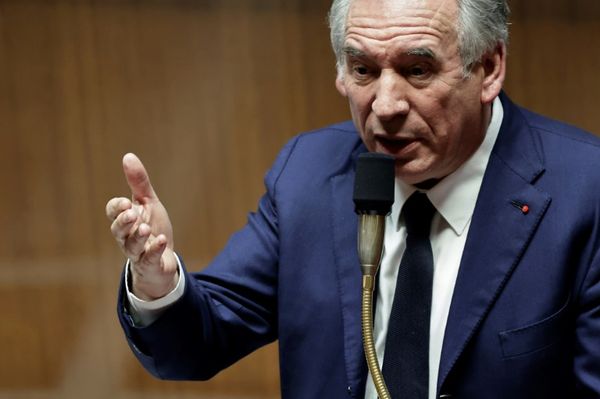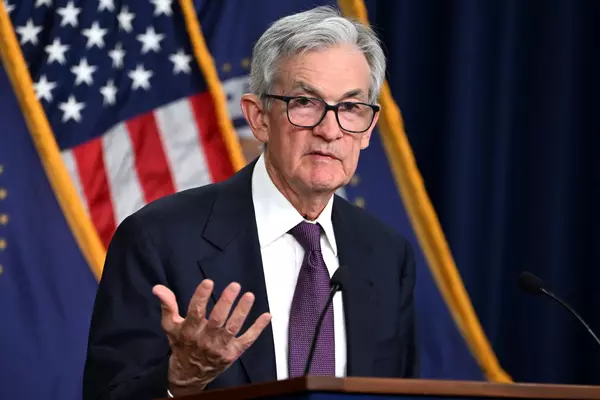SPRINGFIELD, Mo. — The Farmers Market of the Ozarks was packed Saturday with shoppers browsing through stalls of coffee beans, pottery, fresh vegetables, soy candles and birdhouses. At one end of the market, staff from the local health and fire departments offered doses of the Pfizer COVID-19 vaccine.
Ashley Seifert, 39, a pharmacist from Springfield, said she had wanted to get vaccinated for a while, but had been nervous about it. With the recent swell in COVID-19 cases in southwest Missouri, she decided it was time.
Stacy Gambill, of Battlefield, Missouri, was vaccinated earlier this year, but on Saturday she brought her 13-year-old — the only one of her four children who is old enough — to get vaccinated at the market. She said the family debated the issue, but their minds were made up by the anticipation of school resuming in the fall, and the recent upswing here in COVID-19 cases.
"I saw that it was getting really bad," Gambill said.
Indeed, the situation has grown so bad that for the past week, Missouri has led the nation in daily cases per capita. The state's seven-day average of new confirmed cases has more than doubled since the beginning of the month, up to 560 on Sunday from 250 on June 1, according to a Post-Dispatch analysis. The Joplin, Springfield, and Branson areas have all seen increases.
Health officials believe the Delta variant of COVID-19 has played a part in southwest Missouri's recent surge. First identified in India late last year, the variant is estimated to be 60% more transmissible than the Alpha variant, first identified in the United Kingdom. Hospitals in Springfield are treating growing numbers of virus patients, many of them younger than before and the vast majority of them unvaccinated.
With public health restrictions largely gone, and crowded summer events looming, health departments and hospitals are trying to prepare for what comes next.
The day before the farmers market, nurses from the Springfield-Greene County Health Department vaccinated visitors at the Discovery Center, a science center a few blocks from Springfield's main square. Each dose came with a free admission.
Robert A. Gettman, 66, a retiree, rolled up his sleeve. He said he'd worried early on about the possibility of having a negative reaction to the vaccines. But he saw the news about the Delta variant, and the Friday clinic wasn't far from his home.
About a half hour after the event started, he was one of just four people who had been vaccinated.
Jan Atwell, a temporary community nurse with the Springfield-Greene County Health Department, was staffing the clinic. Atwell said she and other health care workers are trying to make the vaccines as convenient as possible, and to make themselves available to talk about any concerns people have.
"It's not a hard sell at all, it's just, 'we're here,'" Atwell said.
Some residents are heeding the message. Statewide data shows Greene County vaccinated 3,246 people in the week ending on Sunday. Only St. Louis and St. Charles counties, plus the Kansas City area topped that. At vaccination clinics in Springfield, many attendees said the news of increased spread, and presence of a more infectious variant in the region helped motivate them to get vaccinated.
But as of Friday, Greene County's rate of fully vaccinated residents had still barely surpassed 33%, and 37% of residents had received at least one dose.
Missouri's first known case of COVID-19 was identified March 7, 2020, in St. Louis County. Days later, state and local officials announced Missouri's second known case: A Greene County resident who had recently traveled to Austria.
Over the next few months, the county managed relatively low case rates, said Katie Towns, acting director of the Springfield-Greene County Health Department. But late last summer, the virus took hold. Cases peaked over winter, hitting a seven-day average of 255 in January.
Vaccines arrived in mid-December, and the situation improved dramatically. By mid-May, the seven-day average of new cases was 17.
Then on May 27, Springfield's mask ordinance expired.
Over the course of June, case rates climbed. On June 1, the seven-day average of new cases was 38. As of Thursday, the most recent data available, it was 108.
"Right as we really started to, I think, let our guard down, there was a surge of disease," Towns said. "We're back in the middle of a crisis."
The health department had been preparing to restart some of the services it had to curtail for the past 15 months. But with a new wave of the coronavirus, that hasn't been possible.
For example, the department has a program for at-risk mothers, but the nurses who normally staff it have been investigating COVID-19 cases and administering vaccines. The department's sexually transmitted diseases clinic also remains closed.
Even with added employees, and an agency contracted to assist with contact tracing, the department is spread thin.
"We started to see a little bit of a light, and then have just gotten pummeled again," Towns said.
At Mercy Hospital Springfield, one of the region's main hospitals, the COVID-19 patient census mostly remained below 20 through the spring, said Erik Frederick, chief administrative officer. On June 1, the hospital had 26 COVID-19 patients. As of Friday, there were 99.
"I do anticipate the numbers will continue to climb. To what degree, we're not sure yet," Frederick said.
During this resurgence, he said, there is added frustration among health care workers. Unlike during the winter surge, vaccines are now widely available.
"There's a simple way for us to solve this problem, and it's right in front of us," Frederick said. "It's free, and easy, and accessible and safe. And a good majority of the public here is just saying, 'No, thank you, that's not for me.'"
Health care workers say they never expected to see such large numbers of patients at this point in the pandemic.
Rachel Kutscher, a nurse manager at Cox Medical Center South, said the number of COVID-19 patients has not reached the level of the winter surge, but, "we're headed there, and we're headed there quickly. These numbers are climbing really fast."
Many are fatigued, and struggling through the unexpected resurgence, said Kutscher.
"Last year was really, really hard. But this, right now, is so much harder," Kutscher said. "Because we're feeling a lot of that pain again."
Nurse Emma Wiley works with Kutscher in the hospital's intensive care unit and the COVID intensive care unit. She also said the situation is beginning to resemble last winter.
"I didn't think we would ever be back here," Wiley said.
Nathan Koffarnus, assistant chief of Missouri's Bureau of Communicable Disease Control and Prevention, said it is possible that the increase in COVID-19 cases could continue to spread up the Interstate 44 corridor toward St. Louis. But, he said, that is difficult to predict.
He urges health care officials in counties even 100 miles from the hotspots to encourage vaccination and testing now. The various vaccines can take two to six weeks to achieve full effectiveness.
Dr. Clay Dunagan, BJC HealthCare's chief clinical officer and an infectious disease expert at Washington University, said on Friday the health system was admitting four COVID-19 patients from hospitals in Springfield that had exhausted their ICU capacity.
That people are becoming ill, to the point of hospitalization or death, from what is now a vaccine-preventable disease, Dunagan said, is "just mind-boggling."
Case rates will likely increase in the St. Louis region, he believes.
Some parts of the metro area have higher vaccination rates than southwestern Missouri. Nearly half of residents in St. Louis County and 47% in St. Charles County were vaccinated with at least one dose as of Sunday.
The city of St. Louis was at 39%, just two percentage points ahead of Greene County. And within the city, some ZIP codes have rates of 29% or lower. One city ZIP code — 63106 north and northwest of downtown — was just 22% vaccinated, the St. Louis health department said Friday.
"Anyone who has just not gotten vaccinated because the (case) rates have been low, and it just hasn't seemed that pressing — they shouldn't wait," Dunagan said.







